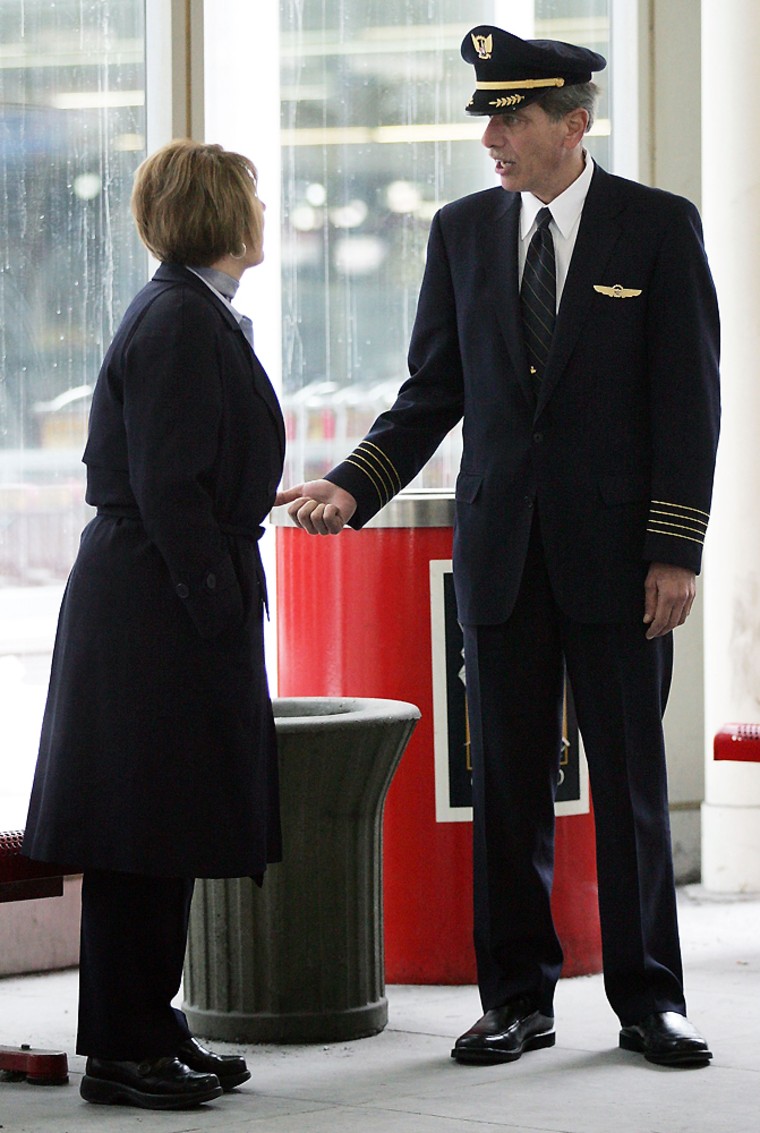Pilots, flight attendants and mechanics who have already seen their wages, benefits and pensions slashed by billions of dollars face even more pain as struggling airlines swing the cost cutting ax anew.
Northwest Airlines Corp. said this week it hopes to save $1.1 billion in labor costs a year, up from a previous target of $950 million.
United Airlines has said it needs to win $725 million a year in concessions to help it emerge from bankruptcy.
Industry leader American Airlines and Delta Air Lines Inc. , each facing about $1 billion in added fuel costs this year, are also looking for additional cost savings, although neither has yet sought new wage or pension cuts.
“It’s a race to the bottom,” said Patrick Murphy, a Washington-based consultant. “The bar for where the cuts have to be keeps getting set lower.”
The victors thus far have been United, controlled by UAL Corp., and US Airways Group Inc., whose Chapter 11 status gives them an enviable flexibility in terminating contracts and pensions.
Machinists at US Airways recently agreed to wage cuts from 12.8 percent to 20 percent, raising annual cost savings agreed upon by its workers to $1 billion. A bankruptcy judge had cleared the company to tear up the machinists’ contract if they rejected the deal.
United, which has reached concession deals with its largest unions, may also seek court approval soon to shift its retirement plans to the Pension Benefit Guaranty Corp, a U.S. agency that backs corporate pensions.
Better at McDonald's?
Unions are angry that United, the No. 2 U.S. airline by passenger traffic, paid its top executive a bonus of more than $366,000 last year, but they see themselves as virtually powerless to change the situation.
“I would bet that there are some managers at McDonald’s that make more than some employees at US Airways,” said Mike Miller, a partner with Washington-based aviation consulting firm Velocity Group. “We’re getting to a point where you have unlivable salaries, especially for some airline flight attendant groups.”
Flight attendants who used to earn more than $30,000 a year have seen their salaries cut by one-third, he said.
Duane Woerth, president of the Air Line Pilots Association, blamed the carriers for failing to raise fares enough to make up for the added expense of record fuel costs.
“If they thought the last round was difficult, the next round will be war if they make no progress on revenues at all,” Woerth said. “(Unions) did their part, and they’re digging in now.”
The airlines have said overcapacity and competition from low-cost carriers limit their ability to raise fares, although they have pushed through increases of about $30 per round-trip ticket this year.
'Whip hand'
Other union officials say their clout is limited, especially with bankrupt airlines in the driver’s seat.
“The ones that are in bankruptcy are driving the bargaining for the ones that aren’t,” said Frank Larkin, a spokesman for aircraft mechanics union IAM. “Clearly bargaining under bankruptcy law is different. The companies have a whip hand, and they’re using it hard.”
Many workers fear for their jobs. Eastern Air Lines, once one of the top four U.S. carriers, was pushed into bankruptcy in 1989 by a strike setting the stage of its shutdown in 1991.
“I think the unions realize how bad the situation is,” said Calyon Securities analyst Ray Neidl. “Serious negotiations are going on across the board with everybody because (the unions) believe their employees’ futures are on the line.”
AMR Corp.’s American is a top candidate to seek additional wage and benefit cuts, Fitch Ratings said earlier this month, citing competitive pressure from United and Continental Airlines Inc. as well as Northwest.
An American spokeswoman said the airline for now is concentrating on cost savings that do not affect wages.
In a sign that many unions see little choice but to accept salary cuts, Houston-based Continental scored unexpectedly quick success in wresting a tentative agreement on $500 million in concessions last month.
But its flight attendants Wednesday rejected their share of the cuts, showing some workers’ patience is running thin.
